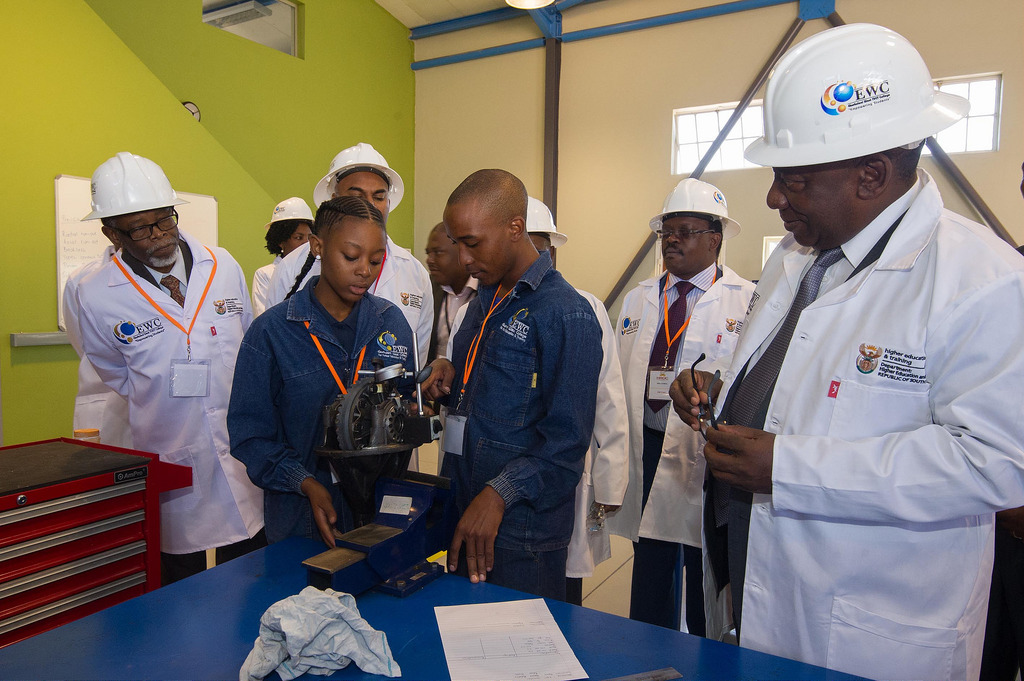The minister of higher education, science and technology Blade Nzimande held a press briefing on the opening of financial aid applications for the 2020 academic year. Applications for the National Student Financial Aid Scheme (Nsfas) opened on September 1. They will close in November.
Nzimande announced that the 2020 Nsfas online application opened on September 1. Last week Nsfas administrator Randall Carolissen briefed parliament’s portfolio committee on higher education on the scheme’s readiness for the year. Carolissen was appointed the administrator of Nsfas by former minister Naledi Pandor. This was after a collapse in governance at the scheme.
Carolissen said Nsfas is ready for the applications for 2020. “The redesign of NSFAS must proceed once calm has been restored to the sector to ensure that the imperatives of social inclusion, poverty reduction, and equity is realised. We owe it to our young people and to our broader society to make NSFAS work,” said Carolissen.
Nzimande said he has decided to approve the second phase of administration. This period will run from August 2019 to August 2020. “Dr Randall Carolissen has agreed to continue as the administrator to fulfil the responsibilities of management, governance and administration of NSFAS during this period,” said Nzimande.
He thanked Carolissen for “agreeing to continue working in this critical role.” Nzimande also wished the organisation well in their work for the upcoming year.
Nzimande said he will be appointing a ministerial task team to review “the business processes and functionality of NSFAS in order to ensure that this bursary scheme functions optimally for the long-term future.”
Nzimande took the opportunity to announce that government has set aside more than R80 billion for the next three years. This is to ensure prospective students from poor and working-class families with a combined household income of R350,000 per annum have access to higher education and training.
Nsfas funding is available for any of the 26 public universities or 50 technical vocational and educational training. (TVET) To be eligible to receive Nsfas funding, applicants need to be a South African citizen; intend to enrol at any of the public universities or TVET colleges in 2020.
In 2017 the president Jacob Zuma announced the free education plan. According to Nzimande, this bursary scheme is being phased in from 2018 over a period of five years.
“I would like to urge all aspiring students to ensure that while they apply for funding to NSFAS they have also submitted the necessary applications to universities and TVET colleges,” said Nzimande.
For students to qualify for funding, they will need to have obtained a place to study at a qualifying institution.
“NSFAS funding is key to government’s support for students in higher education and training. We know that adequate funding and support are crucial factors in assisting students to succeed in their studies, and the support is provided specifically to ensure students have access to enable success in their studies. Our own cohort studies in the department of higher education and training have shown that NSFAS students, on average, perform significantly better than students in the overall population,” Nzimande said.
Nzimande opened the briefing by expressing condolences to the family of Uyinene Mrwetyana. Mrwetyana, a 19-year-old student from Cape Town was killed after being missing for over a week.
“We add our voice to the necessity for societal mobilisation to defeat the scourge of gender-based violence. We are working with the Ministerial Task Team appointed to advise me on issues of sexual harassment and gender-based violence and harm at universities, which has commenced its work,” said Nzimande.
The minister ended off the briefing saying that he would like to “thank the student leadership of our institutions and national organisations for their support to students and to NSFAS and institutions.”
Featured image via GCIS









